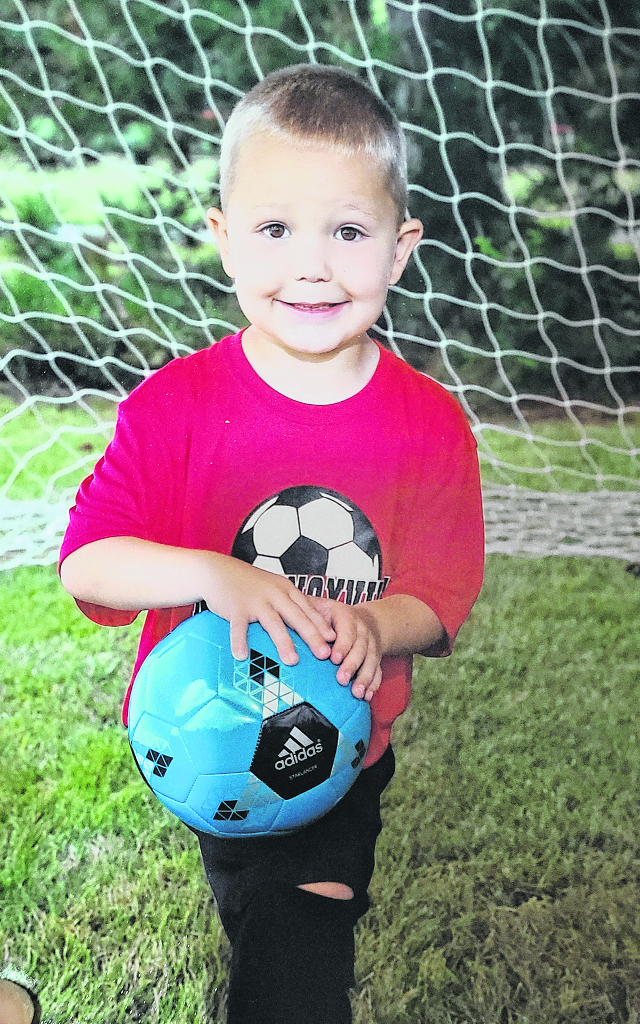NEW KNOXVILLE — Kelly Schoenlein was about 40 weeks pregnant when she learned half of her son’s heart was missing.
It was a distressing diagnosis for Schoenlein, whose son, Allen, would never fully develop the left side of his heart, a congenital heart defect known as hypoplastic left heart syndrome.
Five years and three surgeries later, Allen Schoenlein is enrolled in preschool, playing soccer and living what his mother describes as an otherwise normal life — a sign of the progress made in treating congenital heart defects, the most common birth defect in the U.S.
“It’s not a death sentence anymore,” said Kelly Schoenlein, an advocate for CHD research, who will present a proclamation to the Auglaize County commissioners in February to raise awareness for the affliction.
Nearly one in 100 children are diagnosed with congenital heart defects in the U.S. each year, accounting for an estimated 40,000 live births per year, according to the Centers for Disease Control and Prevention, which reports that many of those children are living longer, healthier lives as medical care and treatment for CHDs improves.
The defects can be as mild as a small hole in the heart to missing or poorly formed parts of the heart, often causing miscolored nails or lips, trouble breathing, tiredness when feeding and sleepiness in infants, the CDC says.
While CHDs may be detected in pregnancy or soon after birth, some are not diagnosed until adulthood, and the causes are often unknown, the CDC says.
Still, the earliest days of Allen Schoenlein’s life were fragile.
The boy underwent his first surgery at just three days old, followed by open-heart surgery five months later, his mother said.
By his third birthday, Schoenlein had already survived three major surgeries.
Schoenlein’s oxygen levels now hit 95%, his mother said, a significant improvement since his last surgery, which allows the New Knoxville boy to do just about anything his peers would do, albeit at a slower pace.
A heart transplant may be in Schoenlein’s future, his mother said. But today, “he is a thriving, amazing little man,” she said. “Life has blessed us. We were in survival mode for quite some time. … You’re always waiting for the other shoe to drop, because he only has half his heart.”
She added, “Being a heart parent can be very hard at times, but you’re not alone. There’s more people out there than you realize that deal with this on a daily basis.”







